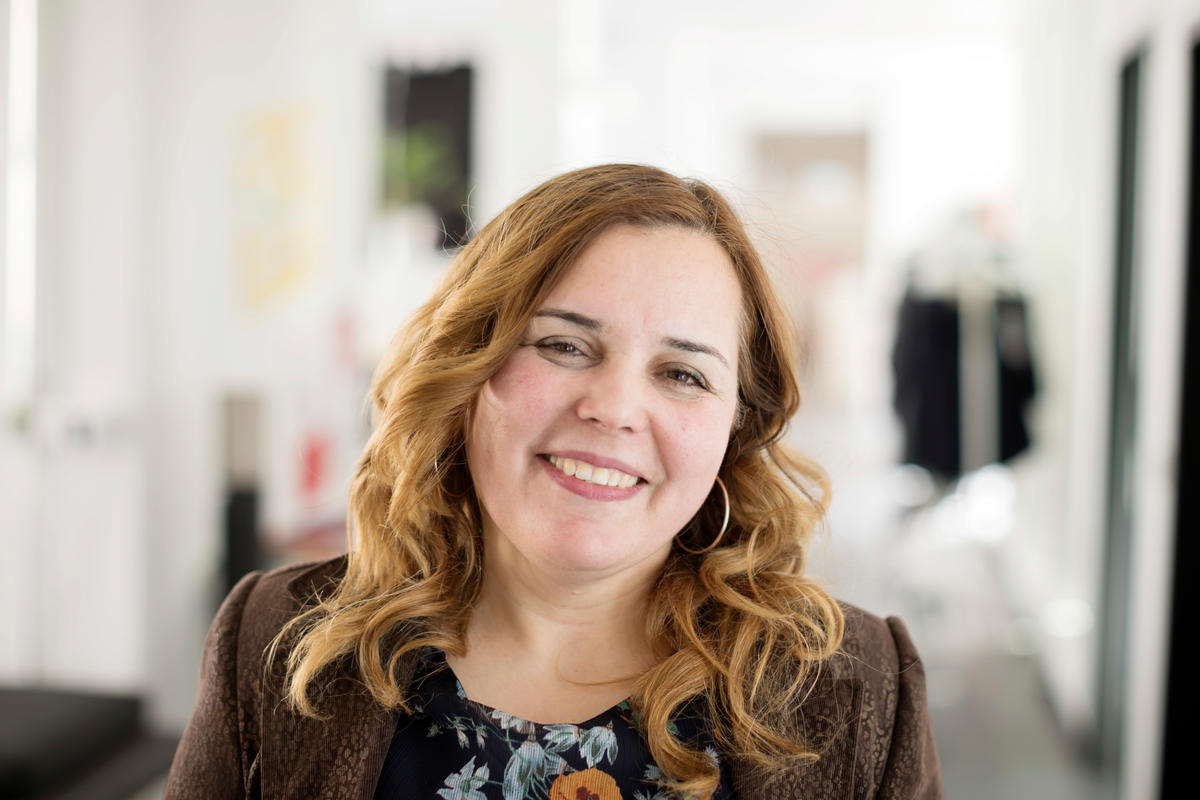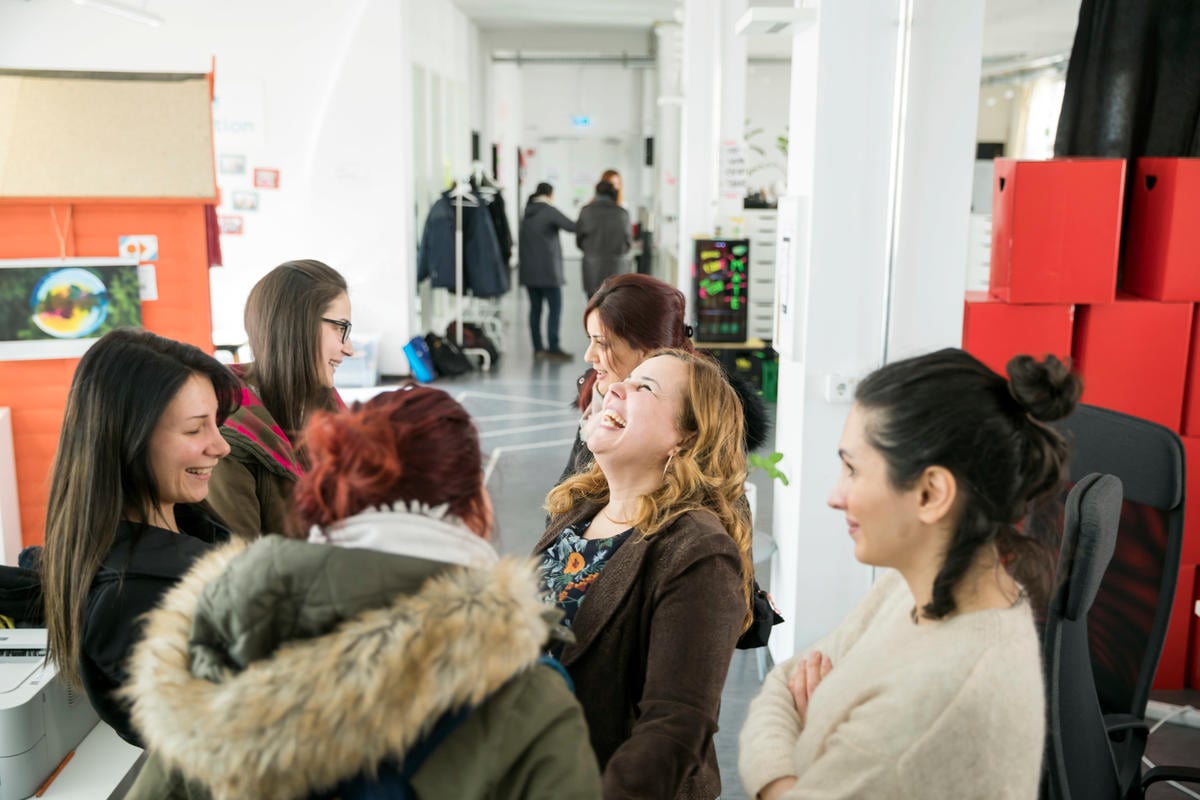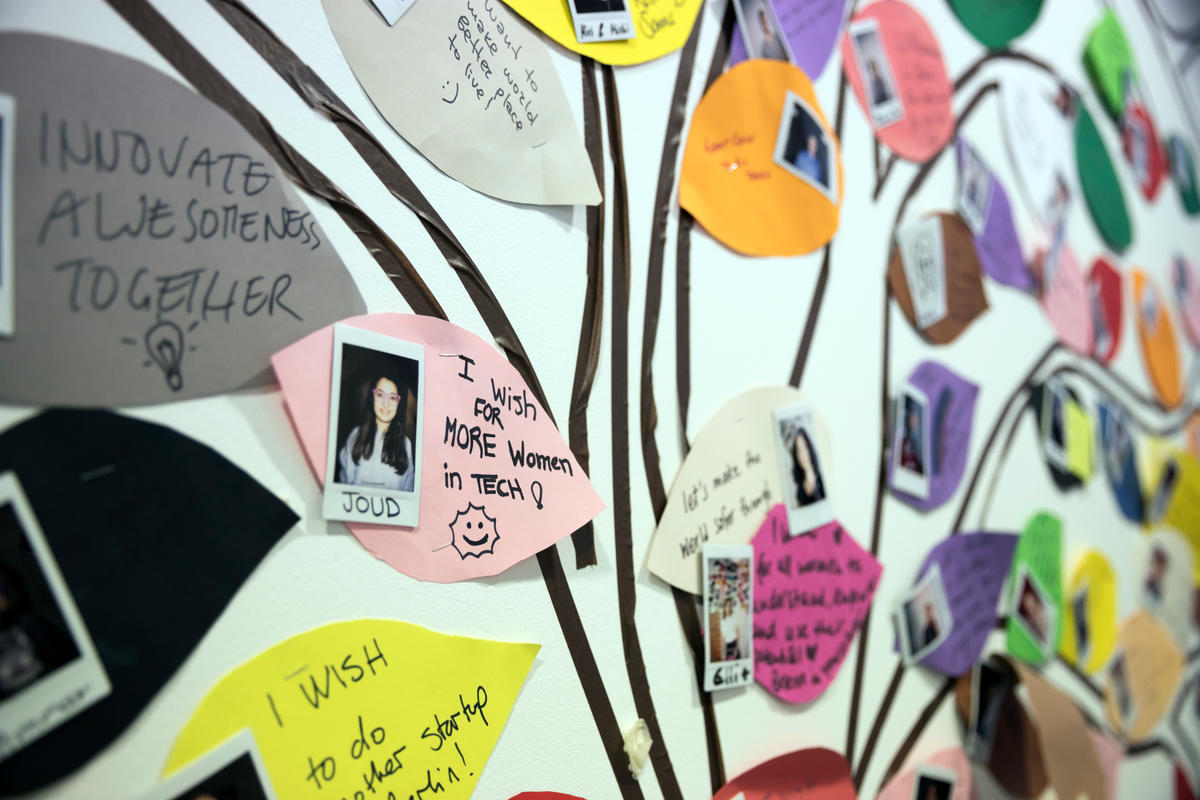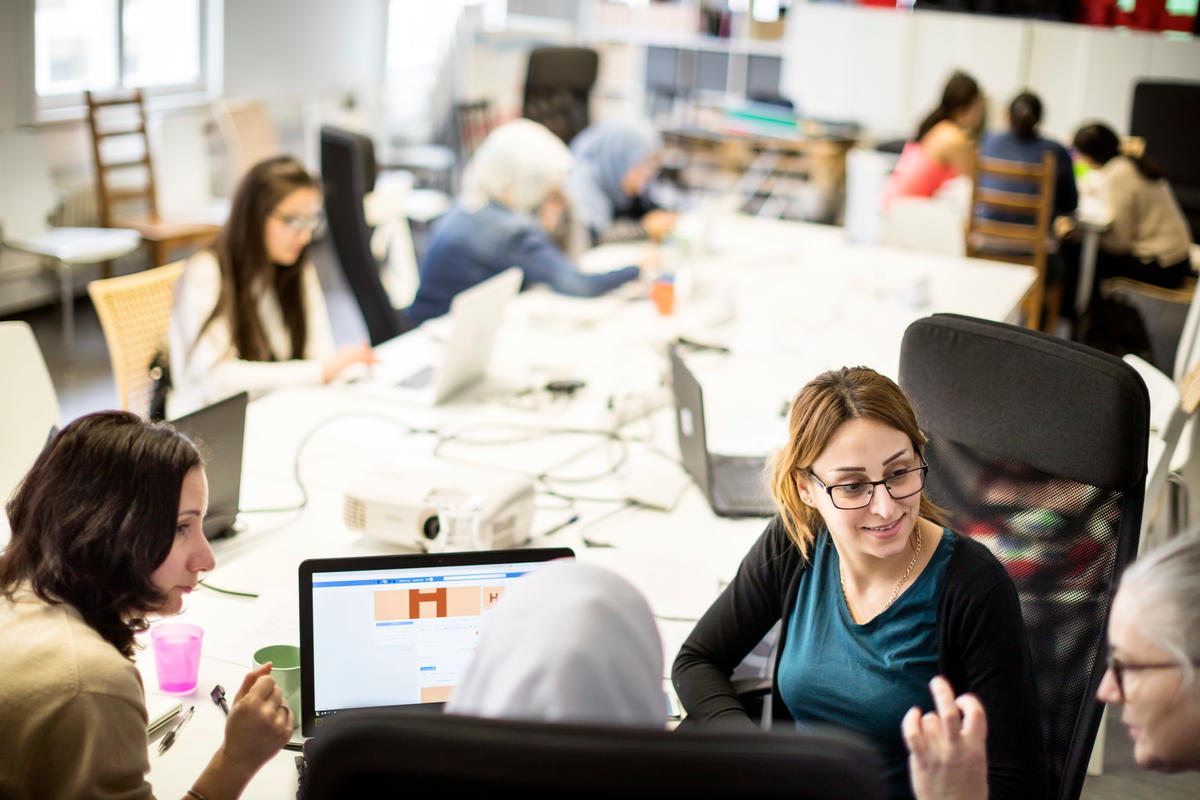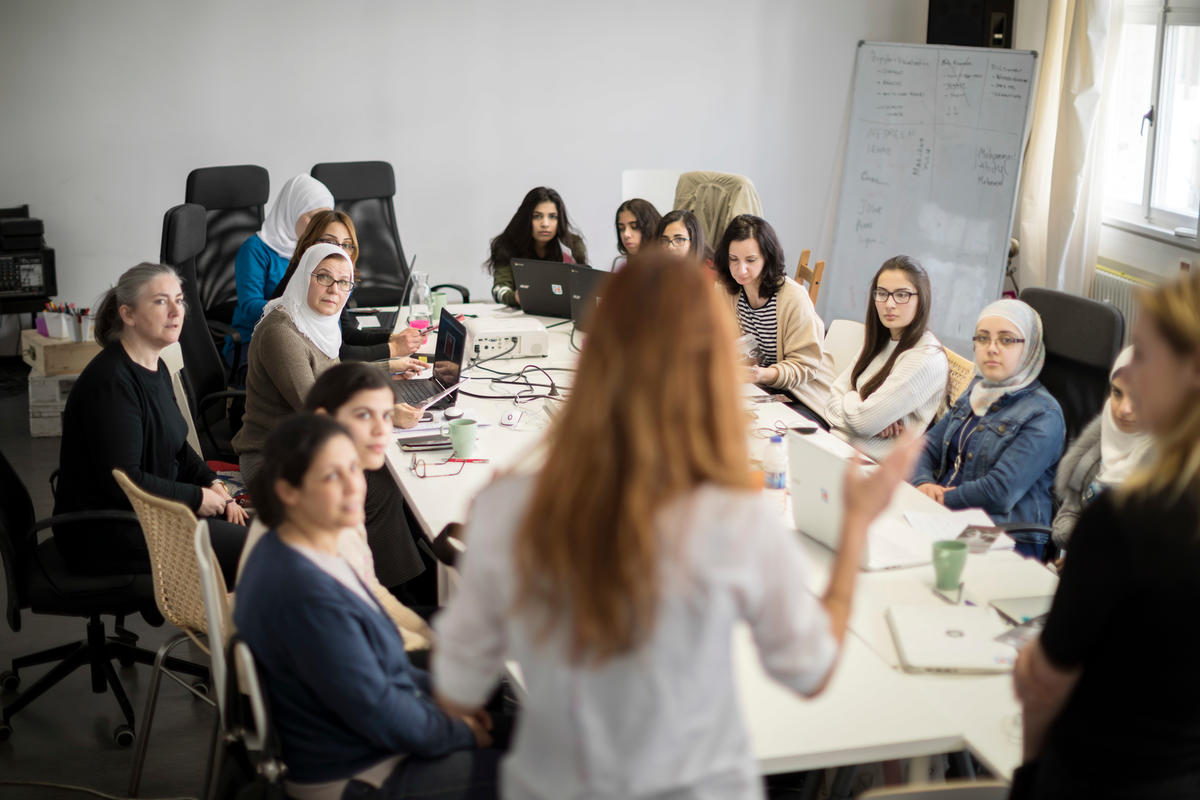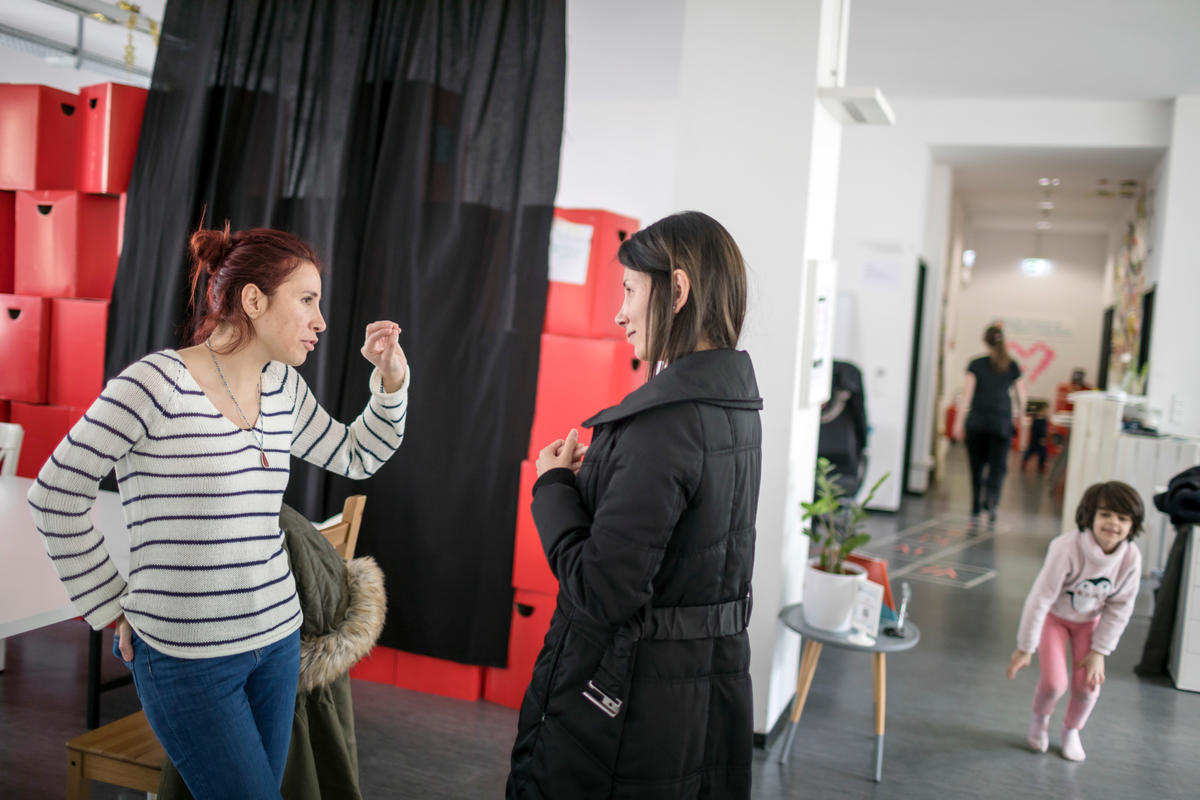German school helps women refugees hone tech skills

German school helps women refugees hone tech skills
Syrian civil engineer Anan Jakich risked her life to bring her family to safety. Now a refugee in Germany, she has joined a community of women newcomers rebuilding their lives through a shared love of technology.
On a Saturday morning in Berlin, Anan and her classmates, many of whom also fled the Syrian conflict, are absorbed in a lesson on cybersecurity. She peers at the words “safe” and “not safe” scrawled on a whiteboard at the front of the class.
“We were just looking for safety,” says Anan, 48, of her decision to flee her home in the city of Salamiyah in 2014. “I couldn’t live with that fear any longer, or the worries about the future. I couldn’t sit and wait for my family to get into worse difficulties.”
The mother of four knew she had to get her family out, but leaving seemed nearly as dangerous as staying. “We tried to find a safe way to leave but it was impossible,” adds Anan. “It was difficult and dangerous. I just wanted my family to be safe.”
Anan travelled to Turkey where she boarded a tiny dinghy bound for Greece. Once at sea, the overcrowded vessel ran into difficulties and had to unload the passengers on to a small, uninhabited strip of land. As the sun set and no help came, Anan was sure she would die.
“The idea of dying there on that island was too awful.”
“I was terrified... the idea of dying there on that island, not in Syria, and my family waiting for me. It was too awful,” she remembers.
After 24 hours without food or water, Anan was rescued by volunteers and taken to safety in Greece. Two weeks later, she arrived in Germany. But she could not rest until her children were also safe.
She applied for family reunification but was devastated to learn there would be a long wait. Her family was finally able to join her after 18 months. While waiting, Anan learned German and took a series of internships. However, it was not until her children arrived in March 2016 that she could begin rebuilding her life in earnest. Her two older children, in their 20s, are still studying, while the younger ones are at school.
Finding a full-time job was her priority. In Syria, she had qualified as a civil engineer at Al-Baath University in Homs and ran her own company.
She soon realized the years of conflict and flight, during which she had had no computer access, had taken its toll on her IT skills. It was then that she heard about ReDI, a Berlin-based non-profit school offering free coding and digital courses to newcomers.
On April 24, UNHCR, the UN Refugee Agency, and the Organisation for Economic Co-operation and Development (OECD) are launching an ambitious action plan to try and boost employment opportunities for refugees through a number of innovative actions, like ReDI. The plan aims to ensure that the economic potential of refugees is fully harnessed, offering a win-win to all – refugees, employers and hosts.
This spring Anan became one of the first students to join ReDI’s Digital Women’s Programme, a series of all-female courses aimed at getting more women learning about technology. Set up for newcomers like Anan without computer access at home, the three-month course takes students with basic skills to the point where they can build their own online businesses.
Programme organizers say free extras such as child care, translators and a catering service have gone a long way towards tempting more women into their previously male-dominated tech courses. Students stand to gain more than just new skills. The school offers access to a network of women working in technology, contacts that have led to job offers for former students.
“I’m a true example of what the school can do to change lives.”
One such success story is Syrian instructor Rita Butman, who came to Germany from Damascus on a student visa in 2017. After completing an advanced course with ReDI, she landed a paid internship with a multinational networking company, one of the school’s corporate sponsors.
“I’m a true example of what the school can do with people to change lives,” says Rita, 31, who had been scraping a living washing dishes before joining the school. “I got to know really amazing people that could give me new horizons.”
Keen to pass opportunities on to others, Rita returns to the school once a week to volunteer as a teacher. This sharing attitude is something programme organizers have noticed more often among their female students.
“Educating women has a ripple effect on the community,” explains Edlira Kasaj, head of the ReDI Digital Women Programme. “The benefit gets passed down through family structures to many more people.”
Anan, who uses her updated IT skills in a new job at the German rail network Deutsche Bahn, is no exception. She often takes her children with her to her Saturday classes at ReDI, so they can also benefit from the school’s informal network. “We have a lot of fun and good communication,” she laughs. “The atmosphere here at the school is like a family. They are all good people, who look after us and support us. We’re all a lot more confident than we used to be.”



